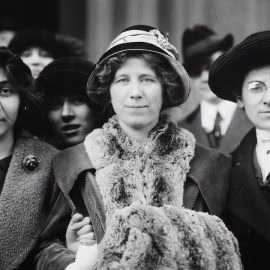

This article is an excerpt from the Shortform book guide to "Quiet: The Power of Introverts" by Susan Cain. Shortform has the world's best summaries and analyses of books you should be reading.
Like this article? Sign up for a free trial here .
Are introverts in school disadvantaged? How are educational institutions biased in favor of extroverts?
Introverts in school can have a difficult time with things like class participation and collaborative projects. However, their ability to focus and the manner in which they learn gives introverts an advantage in high school and college.
Keep reading to find out more about introverts in school and how they do better or worse than their extroverted counterparts.
Introverts in School: How They Learn
Besides helping them avoid financial disaster, introverts’ caution and reflectiveness can help them excel academically and solve complex problems.
In elementary school, extroverts get better grades, but in high school and college, introverts surpass them. In college, introversion is a more accurate predictor of academic performance than is cognitive ability. A disproportionate share of graduate degrees and Phi Beta Kappa keys are earned by introverts. They surpass extroverts on a critical thinking assessment often used by businesses in hiring. Introverts are good at what psychologists call “insightful problem-solving.”
Here are some ways the two groups differ in processing information:
- Extroverts do better than introverts under time pressure and when required to multitask. Also, they handle information overload better.
- Extroverts allocate most of their cognitive capacity to the present task, while introverts use up capacity by monitoring how the task is going.
- Extroverts opt for speed over accuracy in problem-solving. They make increasing numbers of mistakes in the process and may quit if the problem gets too frustrating. In contrast, introverts think before they act, digest information thoroughly, stay on task longer, give up less easily, and work more accurately. One researcher gave people printed mazes: introverts tended to solve more mazes correctly, but they also spent a greater percentage of time studying the mazes before starting on them.
- Introverts do better on tasks requiring persistence, including social tasks. For instance, in one study, introverts did better at cold-calling in telemarketing.
- Extroverts are more likely to focus on what’s happening around them. Introverts tend to sit around wondering about things and making plans.
Finding a Balance
Both introvert and extrovert approaches to problem-solving have value—however, our society seems to overvalue action and the highs that come from reward-seeking. Businesses would benefit by incorporating both approaches in key decisions. As an individual, you can also benefit from understanding where you fall on the reward-sensitivity spectrum and moderating your emotional responses.
For example, be like investor and introvert Warren Buffet, who made billions for himself and shareholders by using persistence, careful analysis, and attention to warning signs. Buffet is known for stepping back to reflect when others are charging heedlessly ahead. He contends that having an even temperament and ability to control impulses that drive others is more important to successful investing than having above-average intelligence.

———End of Preview———
Like what you just read? Read the rest of the world's best book summary and analysis of Susan Cain's "Quiet: The Power of Introverts" at Shortform .
Here's what you'll find in our full Quiet: The Power of Introverts summary :
- How society overvalues extroverts
- Why introverts' overlooked strengths are the key to greater success in work, school, and society
- How extroversion caused the fall of Enron






